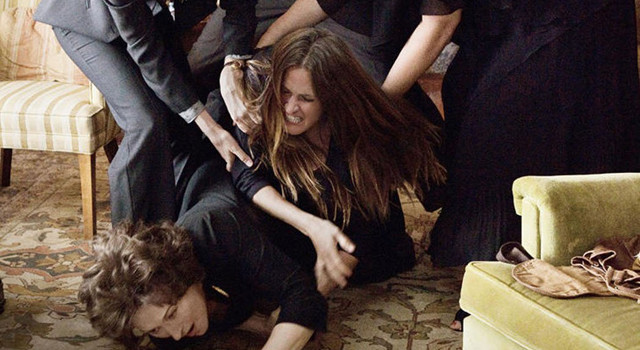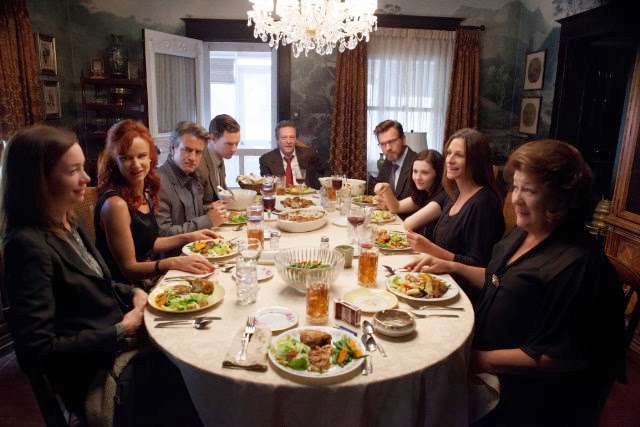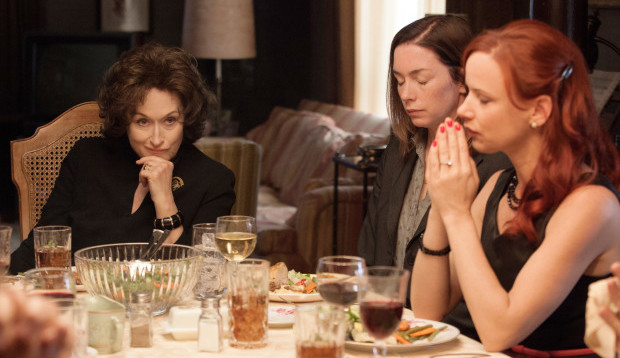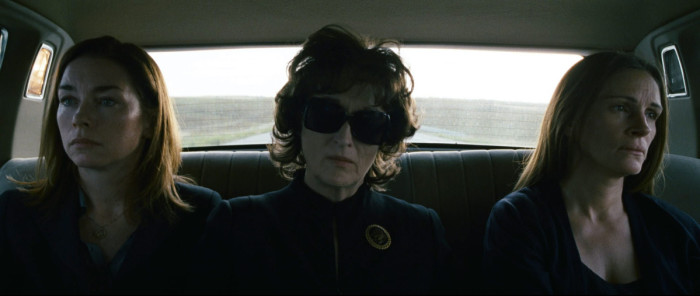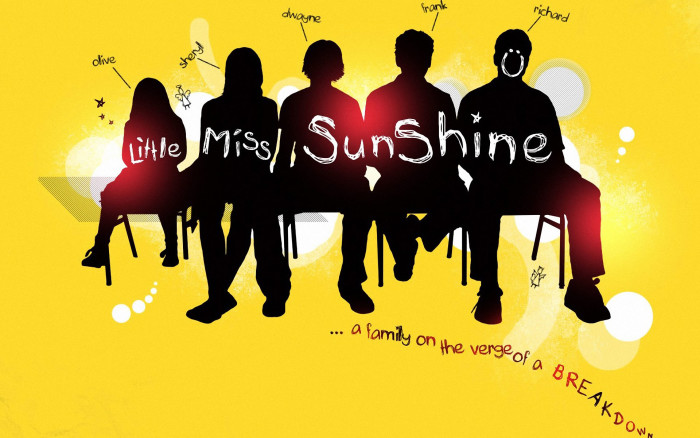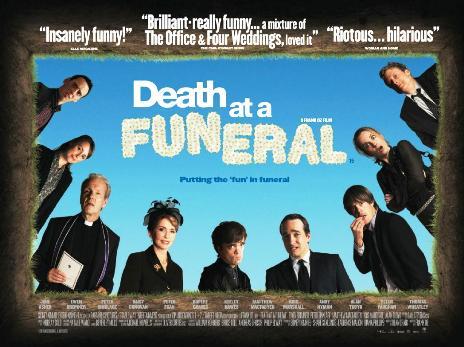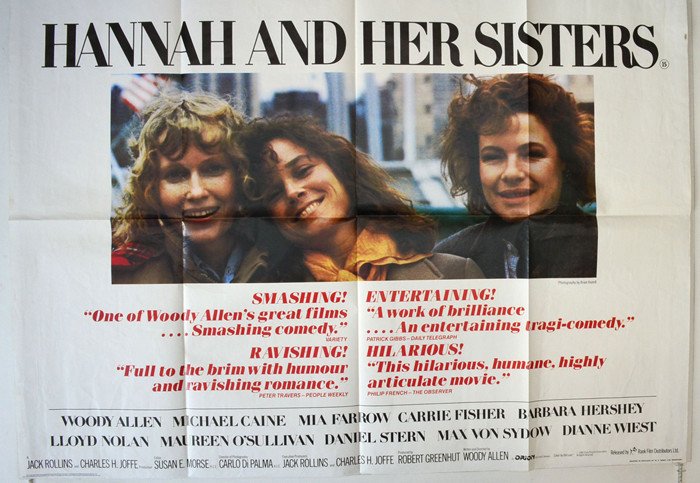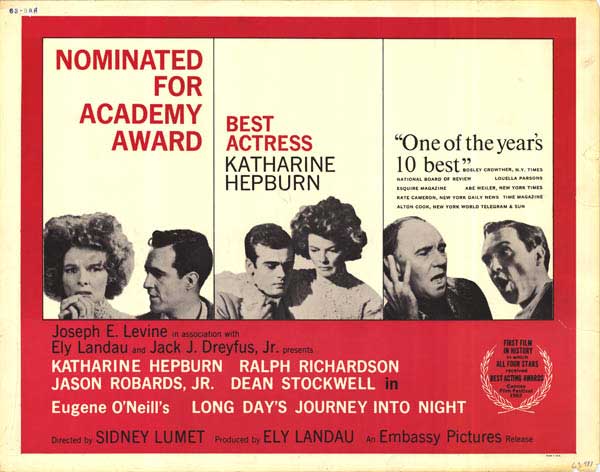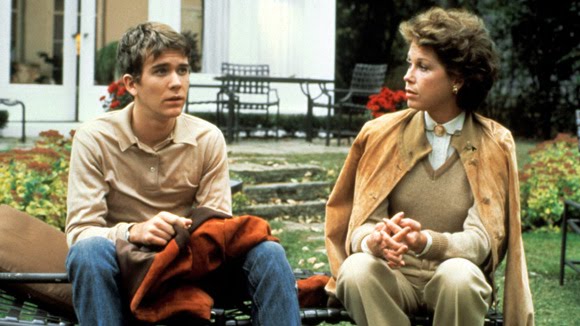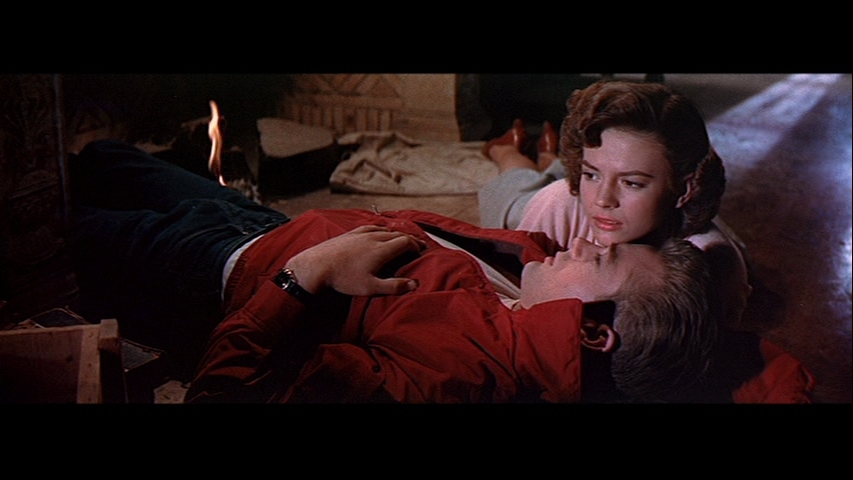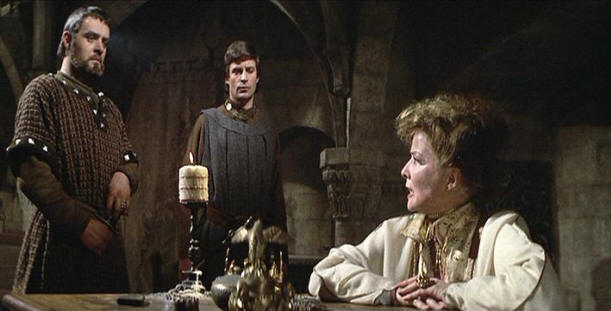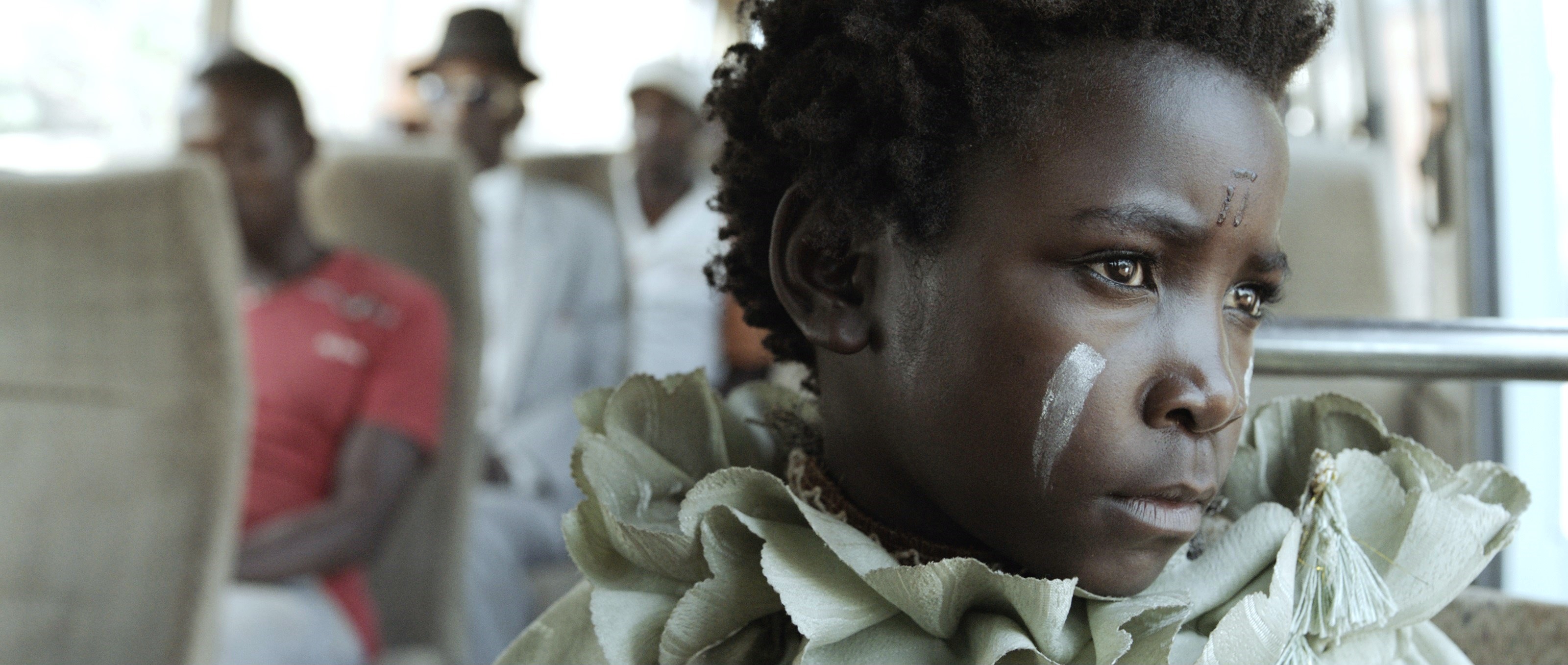
January 9, 2013
Imagine taking about a dozen great musicians, giving them the same song, and asking them to all line up and sing it to an audience at the top of their lungs, at different speeds, each with their own Marshall stack of amplifiers. Now imagine the cinematic interpretation of a play about family dysfunction with some top actors in film coming together to make magic, and ending up creating a similar cacophony. That is what watching August: Osage County feels like. It is an assault to the emotional and physical senses, wherein only the sheer bravura of the actors taking part makes the experience in any way worth it. Pleasant, it is not.
Meryl Streep plays matriarch monstrosity Violet Westin, a pill popping potty mouthed mom of 3 who has “an understanding” with her poet husband Beverly (Sam Shepard), who leaves her to her drugs while he self medicates with drink. Ironically, acid-tongued Violet has been smacked with the karma stick. She is dying of mouth cancer.
When Beverly disappears for 5 days, daughters Barbara (Julia Roberts), Ivy (Julianne Nicholson) and Karen (Juliette Lewis) and their various familial entanglements come together for support and to determine what has happened. No need to go into all the BIG DRAMA of this family. Suffice to say, if it can be a dysfunction, it will show it’s ugly head by the end of the story…and that’s the problem. There’s too much “there” there. Just when you think this family can’t get anymore messed up, they trot out another dysfunction. It’s all just too much, unless you are expecting a modern version of a Greek tragedy…or perhaps all the Greek tragedies rolled into one screenplay.
Clearly someone somewhere was impressed with the original, since playwright Tracy Letts scooped up a Pulitzer prize in 2008, and the play itself won a slew of awards including 7 Tonys. It may be that in the smaller confines of the theater, one doesn’t notice or finds more poignancy in the staggering lack of communication and understanding between members of the family. On film however, it feels almost as if they are all talking to themselves. It isn’t for lack of trying. The acting, as expected with a cast like this, is spectacular.
Streep in particular is a nightmare not soon forgotten, as she evicerates those around her, partly as a result of her drugged stupor, partly in an effort to exorcise an acidic self hate. Should you choose to see the film, watch for the genius way she can switch emotional gears in mid sentence, while maintaining a bone deep authenticity. All the actors work overtime to play their parts watching each other for clues. As actors they may manufacture them, but they won’t find them in the script.
The problem with AOC, is the characters as written are so wrapped up in their own suffering, they scarcely notice anyone else or attempt any real connection. Perhaps with what these people have been through, they are beyond that. But sadly, we the audience are left asking, who cares?
Margo Martindale, playing Violet’s sister Mattie Fae, and Chris Cooper as her husband Charles, are relative anchors to the histrionics that surround them, but they don’t bring enough calm to offer the palate cleanse needed to inspire auds to reengage in the highlighted human wreckage on display. “Little” Charles, their son, played by Benedict Cumberbatch, is woefully underused and part of a subplot whose payoff, to return to the music concert metaphor, blows our eardrums out.
This is Antigone meets American Beauty, without whatever subtlety either of those stories may offer to make them either palatable and relatable.
Look. Cinema Siren has as much family drama as the next gal, but a movie like August: Osage County had better have insight, and strong arcs to characters with admirable qualities with which we feel a kinship in the story. That would make sitting through such emotional torture worth it. These actors can act themselves into an emotional froth till the Clonazepam comes home, but it won’t be enough to make sitting through this movie worthwhile. 2 stars (for the colossal acting therein)
Better you should watch very best in dysfunctional families on film. Here is Cinema Siren’s top ten:
10. The Family Stone (2005)
Both written and directed by Thomas Bezucha, a great acting ensemble including Sarah Jessica Parker, Claire Danes, Dermot Mulroney, and Diane Keaton in a film about an uptight girl coming to meet her boyfriend’s family at Christmas, and the ensuing emotional disaster.
9. Little Miss Sunshine (2006)
Steve Carell, Toni Collette, Greg Kinnear and Abigail Breslin head up another great cast in this quirk-fest about a girl who dreams of being in a beauty pageant final, leading to a cross-country road trip. Breslin letting her Superfreak flag fly in the talent portion of the pageant alone makes this a cult classic to be cherished.
8. Home for the Holidays (1995)
Director Jodie Foster brings the star-studded cast including Holly Hunter, Anne Bancroft, Robert Downey Jr. and Charles Durning sharing a Thanksgiving that would leave the most centered person in need of therapy.
7. Death at a Funeral (2007)
Frank Oz directs a grat mostly English cast coming together for a patriarch’s funeral and discovering all sorts of secrets in this most funny movie that was disastrously remade in Hollywood. See this version starring Matthew MacFadyen, Rupert Graves, Jane Asher, and a scene stealing Alan Tudyk.
6. Hannah and her Sisters (1986)
Swapping husbands and lovers is the feature of this Woody Allen classic starring Mia Farrow, Dianne Wiest, Barbara Nershey, and Michael Caine. Weist and Caine won Oscars for their portrayals, and Allen won best screenplay.
5. Long Days Journey into Night (1962)
Here is a great cinematic interpretation of a play, this one by Eugene O’Neill writing about this own drug and alcohol fueled family life starring Katherine Hepburn, Ralph Richardson and Jason Robards. Directed by Sidney Lumet, this is as dark as dysfunction gets, performed with precision from a heartbreaking script.
4. Ordinary People (1980)
Robert Redford won an Oscar for directing and best picture, Timothy Hutton won for best supporting actor, and Mary Tyler Moore did arguably her best work in this film about a grieving family of WASPs struggling with the loss of their oldest son, and the breakdown of their family.
3. American Beauty (1999)
Sam Mendes also won an Oscar for direction and Alan Ball won for his screenplay, about depressed mid-lifer Lester Burnham (Kevin Spacey in an Oscar winning performance) and his acidic wife Carolyn (Anette Bening) and their emotional struggles, with Chris Cooper flexing his own considerable acting muscles.
2. Rebel Without a Cause (1955)
Method acting poster boy James Dean and the ever under-appreciated Natalie Wood chew themselves through their dysfunctional scenery and get her and supporting actor Sal Mineo Oscar nominations as they deal with being misunderstood by their families.
1. The Lion in Winter (1967)
The world’s best film about family dysfunction, and as an added bonus it features a royal family. In 1183 AD a king has to decide which son to give his throne to, and he fights with them and his wife in the most acerbic and witty ways imaginable. Katharine Hepburn won best actress, and James Goldman deservedly won for best screenplay. Peter O’Toole plays against her as the king, and once again showed himself to be a king of actors.


